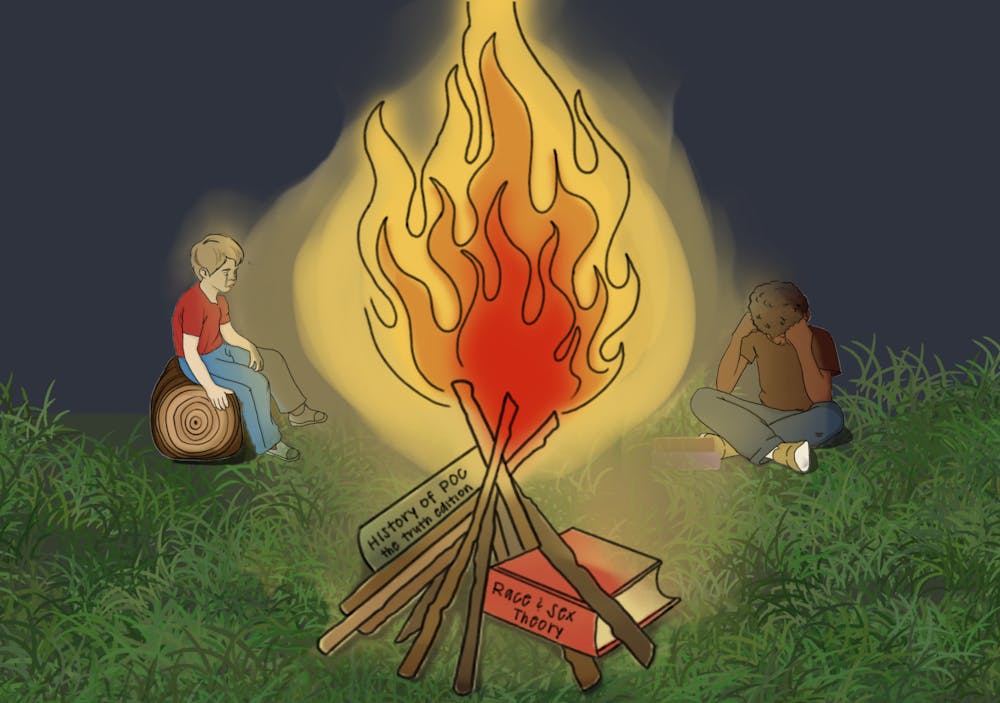On Jan. 23, the Indiana House of Representatives passed a bill that restricts education of the country’s racial history within Indiana schools.
Just in time for Black History Month, state legislators have shown their lack of awareness and compassion for Black issues and the nation’s gruesome past and present.
HB 1134 titled, “Education Matters”, has received backlash from educators, advocates and parents all across the state of Indiana. This bill has been named one of seven anti-critical race theory bills which would cause harm to the education of racial issues, President of Marion County Young Democrats RaeVen Ridgell said.
Ridgell said multiple groups of people with diverse backgrounds are being targeted by the language in the bills introduced during this legislative session.
“To say this bill aids fragility does not do it justice,” Ridgell said. “This bill aids supremacy and it aids in comfort.”
Ridgell said the notion being attacked within this bill is the idea that there should be an exclusion of discomfort for groups in learning, which is a disservice to education and to all students.
“In order to grow, sometimes discomfort happens,” Ridgell said. “There is this notion that in order for students to be okay they don’t need this discomfort and this is inaccurate.”
Unfortunately, for Black and brown students there is no choice but to bear the responsibility of fighting against the same injustice our own ancestors fought for in the history this bill references.
This bill is protecting white supremacy and devaluing the harmful history that Black people and other marginalized groups of people have been victims to for hundreds of years.
The bill states any active school employee may not adopt or enforce language, “That an individual, by virtue of individual’s sex, race, ethnicity, religion, color, national origin, or political affiliation, bears responsibility for actions committed in the past by other members of the same sex, race, ethnicity, religion, color, national origin or political affiliation.”
This section seems to be in clear reference to students learning about negative pasts regarding groups who have deemed themselves superiors and other minority groups, inferiors. An example of this would be slavery within the United States.
Aside from the impact this bill could have on Black and brown children, it introduces a lack of trust for educators. Unfortunately, this bill could have a long-lasting, negative effect on the way educators teach if it is signed into law.
The bill also states no school corporation or entity can require its employees to take training, orientations or therapies which could include training created around diversity and others addressing individual bias.
“Bills like this create difficulties for our educators who are already constrained and bound in ways which they already struggle with,” Ridgell said. “It is already difficult for teachers to maneuver.”
Ridgell said she thinks putting strict regulations on what teachers can teach is detrimental to the work and relationships teachers can build with their students throughout their careers.
“Teachers are teaching so much more than two plus two equals four,” Ridgell said. “Through curriculum, language and lessons they are teaching us to be humans and how to socialize with ourselves and others.”
Instead of working to right the wrongs of injustice, racism and discrimination, Indiana legislators wish to keep these truths hidden. Legislators are working to protect the feelings rather than educate on horrible acts against humanity.
The bill still has to go through the Indiana Senate before becoming a reality, but the language speaks to the mindset of elected officials within the state and exemplifies the necessity for teaching historical truths.
Hopefully, Indiana lawmakers will do what is right and protect the most unprotected groups within this country. Black and brown students deserve to be heard and have their history taught to them.
“Only through discomfort can we bring change,” Ridgell said.






